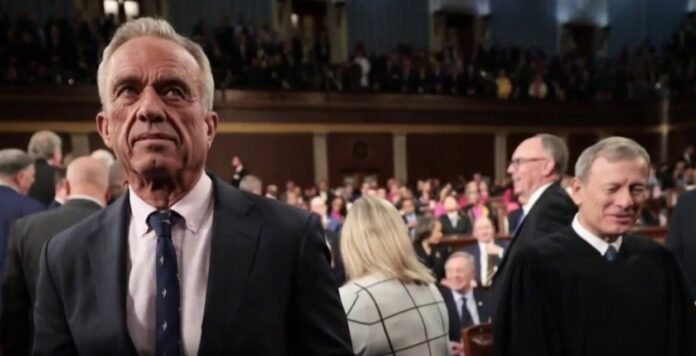Kennedy vaccine panel firing triggers scientific outrage as all 17 CDC advisers are removed amid public health concerns
A political firestorm erupted on Monday as the U.S. Health and Human Services Secretary Robert F. Kennedy Jr. abruptly fired all 17 members of the CDC’s vaccine advisory panel, a dramatic decision that experts say could destabilise decades of public trust in vaccination programmes.
Kennedy, a long-time critic of vaccines and a controversial figure in American health policy, justified the mass dismissal as an effort to “restore public trust.” In a statement released by his department, he insisted the shake-up of the Advisory Committee on Immunisation Practices (ACIP) marked a fresh start—one that, he claimed, wasn’t guided by pro- or anti-vaccine ideology.
“We’re clearing the decks,” Kennedy declared. “We’re putting public trust before entrenched interests.”
But scientists and health professionals across the country called it something else entirely—dangerous, reckless, and politically motivated.
The ACIP, an independent group of physicians, scientists, and public health experts, provides recommendations on who should receive approved vaccines. While it does not greenlight vaccines itself—that responsibility lies with the Food and Drug Administration—it plays a critical role in shaping national vaccine schedules.
Critics say the firing has no precedent in modern health governance.
“This is political interference at its worst,” said Dr Jesse Goodman, former chief scientist at the FDA. “These experts weren’t appointed to carry political water. Their job was to save lives.”
According to the Department of Health and Human Services, all 17 ACIP members had been appointed under former President Joe Biden, with the majority entering their roles in 2024. By ousting them now, Kennedy ensures that President Trump’s administration can reshape the panel immediately, rather than waiting years for terms to expire.
Public health organisations expressed alarm.
The Pharmaceutical Research and Manufacturers of America warned that the move “undermines vaccine confidence and public health stability.”
Kennedy, however, accused the panel of being riddled with conflicts of interest, though neither he nor the HHS provided concrete examples. According to public CDC documents, only one former member had recused herself from select votes due to involvement in vaccine trials.
Pfizer, Moderna, and BioNTech—whose vaccines are among the most commonly recommended—saw share prices slip after news broke. Some market watchers pointed to uncertainty about future vaccine rollouts as a key concern.
Experts note that vetting replacements for ACIP can take months, raising questions about whether Kennedy’s team has already been working behind closed doors to identify successors.
“Unless they’ve been operating in the shadows, I don’t see how they seat a new panel in time for the June meeting,” said one anonymous official with ties to the committee.
This isn’t Kennedy’s first brush with controversy since assuming office. Health authorities have previously criticised him for downplaying the need for measles vaccines amid a deadly outbreak, and for bypassing standard procedures when cancelling COVID-19 vaccine recommendations for children and pregnant women.
The backlash to his latest decision crossed party lines.
Republican Senator Bill Cassidy, a physician from Louisiana, voiced concern that Kennedy would stack the ACIP with “people who know nothing about vaccines except suspicion.”
“This isn’t a political body,” said Dorit Reiss, a vaccine policy expert at UC Law San Francisco. “It’s a scientific one. Presidents have never touched ACIP appointments—until now.”
The ACIP’s next meeting, scheduled for June 25–27 at CDC headquarters in Atlanta, now hangs in limbo. Whether a full panel will be seated by then remains to be seen. Until that moment, one of the most critical arms of America’s public health infrastructure stands neutered—stripped of its experts, shrouded in political controversy, and watched nervously by a country already divided on science.
